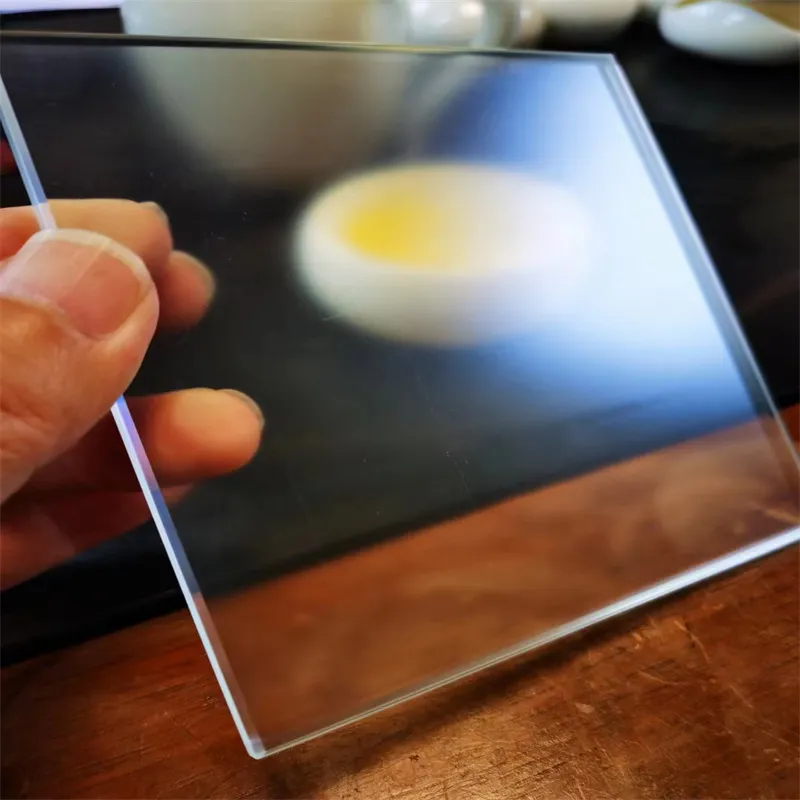Dec . 26, 2024 12:18 Back to list
laminated glass
The Advantages and Applications of Laminated Glass
Laminated glass is a versatile and innovative material that has gained significant popularity in various industries, particularly in construction and automotive applications. Comprising two or more layers of glass interlayer, laminated glass is bonded with a durable polymer, usually polyvinyl butyral (PVB) or ethylene-vinyl acetate (EVA), under heat and pressure. This unique construction not only enhances the glass's strength but also provides a myriad of benefits that make it an advantageous choice for many applications.
Enhanced Safety and Security
One of the foremost advantages of laminated glass is its safety features. The interlayer holds the glass pieces together even when shattered, preventing sharp shards from scattering and posing a risk of injury. This makes laminated glass an excellent option for public buildings, schools, and homes, where safety is paramount. Furthermore, its resistance to breakage adds an extra layer of security against forced entry, making it a popular choice for windows and doors in commercial and residential buildings.
Sound Insulation
Another notable benefit of laminated glass is its ability to reduce noise pollution. The interlayer acts as a sound-dampening barrier, significantly decreasing the transmission of sound between environments. This property is particularly valuable in urban settings with high levels of noise, where laminated glass can create a quieter and more comfortable indoor atmosphere. As cities continue to grow and noise pollution becomes an increasing concern, laminated glass is becoming an essential feature in modern architectural design.
UV Protection
In addition to its safety and soundproofing capabilities, laminated glass also offers protection against harmful ultraviolet (UV) rays. The interlayer blocks a significant percentage of UV radiation, which can cause fading and deterioration of furnishings, artwork, and other materials indoors. This feature is particularly important for museums, galleries, and homes with valuable or sensitive items. By utilizing laminated glass, property owners can prolong the life of their interiors while maintaining a visually appealing environment.
laminated glass

Energy Efficiency
Laminated glass contributes to energy efficiency as well. When combined with other glass technologies such as Low-E (low-emissivity) coatings or insulating gas infill, laminated glass can enhance the thermal performance of a building. This can lead to reduced energy costs for heating and cooling, thereby promoting a more sustainable approach to construction. As the push for green building practices increases, laminated glass is emerging as a crucial component in developing energy-efficient structures.
Aesthetic Appeal
Beyond its functional benefits, laminated glass also offers a high level of aesthetic appeal. Available in a variety of colors, patterns, and textures, laminated glass can be customized to meet the aesthetic requirements of virtually any project. This versatility allows architects and designers to be more creative, integrating laminated glass into both structural and decorative elements of a building. Whether used in facades, skylights, or within interior spaces, laminated glass can enhance the overall visual impact of a design.
Versatile Applications
The applications of laminated glass are vast. It is commonly used in residential and commercial buildings, including windows, glass doors, skylights, and shower enclosures. In the automotive industry, laminated glass is used for windshields, contributing to passenger safety and comfort. It also finds its place in the aviation sector, marine applications, and even in the production of solar panels.
Conclusion
Laminated glass represents a perfect blend of safety, aesthetic appeal, and functionality. Its range of benefits, including enhanced security, sound insulation, UV protection, energy efficiency, and versatility, make it an indispensable material in modern architecture and design. As technology continues to advance, laminated glass will undoubtedly evolve, finding new applications and addressing the ever-changing needs of society.
-
Safety and Style with Premium Laminated Glass Solutions
NewsJun.24,2025
-
Reinvents Security with Premium Wired Glass
NewsJun.24,2025
-
Premium Float Glass Line for Modern Architecture
NewsJun.24,2025
-
Low Emissivity Glass for Energy-Efficient Architecture
NewsJun.24,2025
-
High-Performance Insulated Glass Solutions for Modern Architecture
NewsJun.24,2025
-
Elevates Interior Style with Premium Silver Mirror
NewsJun.24,2025
Related PRODUCTS














